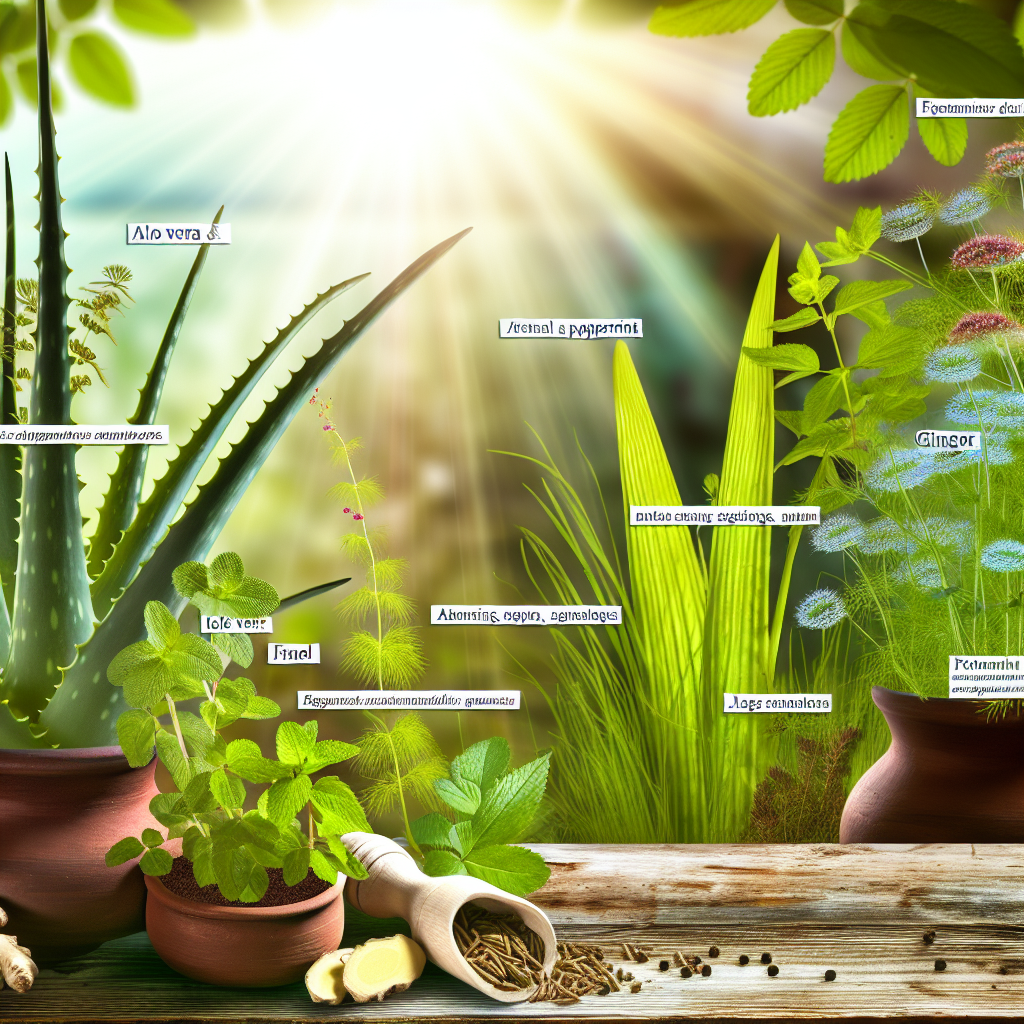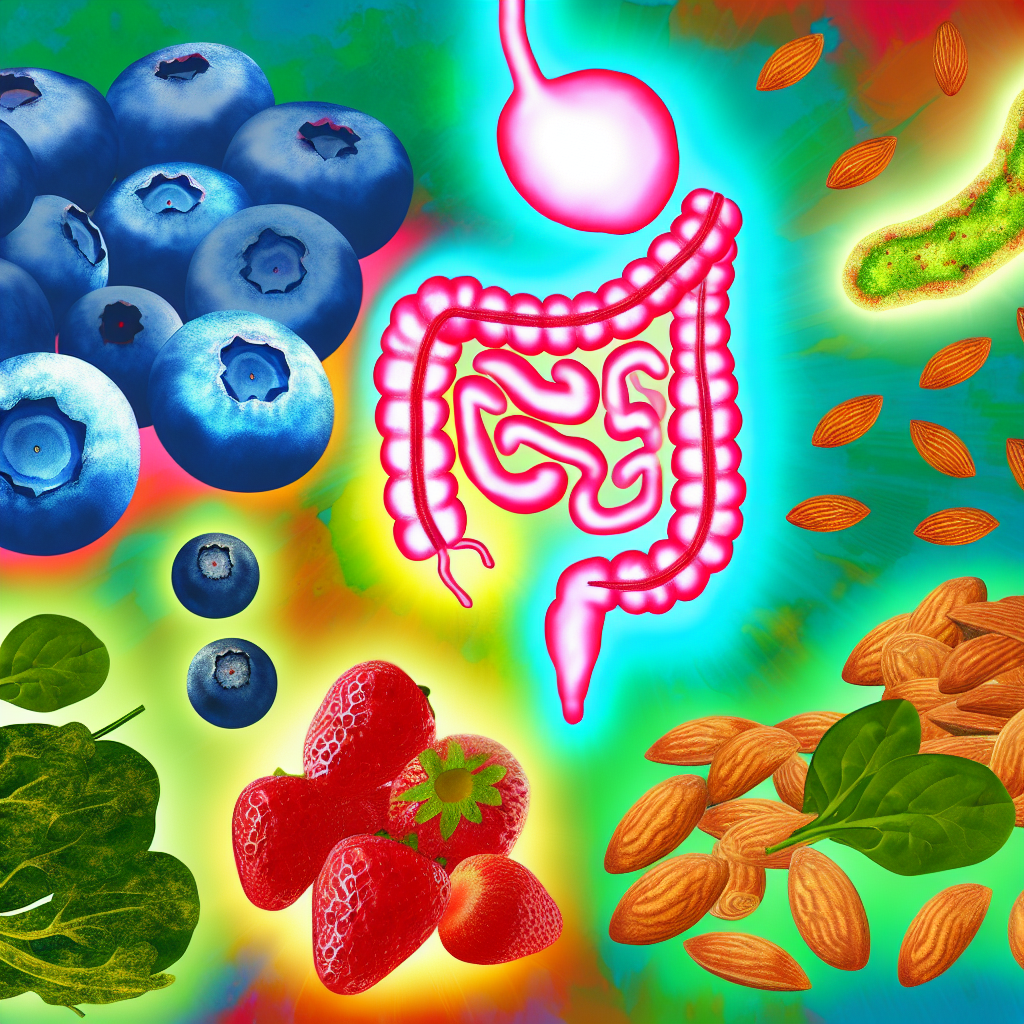Using Herbal Supplements for Digestive Support
Introduction
Maintaining optimal gut health is essential for overall well-being. The digestive system plays a crucial role in breaking down food, absorbing nutrients, and eliminating waste. When the gut is imbalanced, it can lead to issues such as bloating, indigestion, constipation, diarrhea, and even more severe conditions like leaky gut syndrome and irritable bowel syndrome (IBS). While conventional medications and dietary changes can help, many individuals turn to natural remedies to support their digestive health.
Herbal supplements have been used for centuries in traditional medicine systems, including Ayurveda, Traditional Chinese Medicine (TCM), and Western herbalism. These natural remedies contain bioactive compounds that can enhance digestion, soothe inflammation, promote gut microbiome balance, and improve overall gastrointestinal function. Herbs such as ginger, peppermint, chamomile, and aloe vera have long been recognized for their beneficial effects on gut health.
Beyond anecdotal evidence, modern scientific research is increasingly validating the effectiveness of these herbal supplements in supporting digestive wellness. Herbal supplements can provide relief for common digestive concerns such as acid reflux, bloating, IBS, and gut dysbiosis by promoting the secretion of digestive enzymes, reducing inflammation, and fostering beneficial gut bacteria.
With the rising demand for natural health solutions, understanding the potential benefits and science behind herbal digestive supplements is more important than ever. In this article, we will explore some of the most effective herbal supplements for digestive support, delve into scientific studies backing their efficacy, and discuss how they can be incorporated into a holistic gut health strategy.
Science-Backed Herbal Supplements for Digestive Health
1. Ginger: Nature’s Digestive Aid
Ginger has been widely studied for its digestive benefits. It is known to stimulate digestion by increasing gastric emptying and reducing bloating. A study published in the *World Journal of Gastroenterology* found that ginger accelerated gastric motility and reduced indigestion symptoms in participants who consumed it before meals [(Hu et al., 2011)](https://www.ncbi.nlm.nih.gov/pmc/articles/PMC3203626/). Additionally, ginger has anti-inflammatory properties that help soothe the gastrointestinal lining, making it beneficial for individuals with nausea, acid reflux, and IBS.
2. Peppermint: A Refreshing Remedy for IBS
Peppermint oil has been shown to be highly effective in treating IBS. According to a meta-analysis published in *BMC Complementary Medicine and Therapies*, peppermint oil capsules significantly reduced abdominal pain and bloating in participants with IBS [(Khanna et al., 2014)](https://bmccomplementmedtherapies.biomedcentral.com/articles/10.1186/1472-6882-14-99). The menthol in peppermint has a relaxing effect on the gastrointestinal muscles, which helps reduce spasms and promote smoother digestion. Moreover, peppermint’s antibacterial properties support gut microbiome balance by inhibiting the overgrowth of harmful bacteria.
3. Chamomile: A Soothing Herb for Digestive Discomfort
Chamomile has been traditionally used to soothe digestive discomfort, particularly in cases of indigestion and colic. Research published in *Molecular Medicine Reports* indicates that chamomile has anti-inflammatory and antispasmodic properties that can alleviate gastrointestinal distress [(McKay & Blumberg, 2006)](https://journals.sagepub.com/doi/10.1177/2156587217717414). Its calming effects on the digestive system make it beneficial for individuals dealing with stress-induced gut issues, which are common in conditions like IBS.
4. Aloe Vera: A Natural Solution for Acid Reflux and Constipation
Aloe vera is well known for its soothing and anti-inflammatory effects, particularly for individuals suffering from acid reflux and constipation. A study published in the *Journal of Traditional Chinese Medicine* found that aloe vera juice significantly improved symptoms of gastroesophageal reflux disease (GERD) without the side effects associated with conventional acid reflux medications [(Panahi et al., 2015)](https://www.sciencedirect.com/science/article/abs/pii/S2212958815000361). Aloe vera aids in digestion by promoting the production of digestive enzymes and maintaining gut mucus integrity.
5. Licorice Root: An Herbal Protector for Gut Health
Licorice root, particularly its deglycyrrhizinated form (DGL), has been shown to support digestive health by protecting the gut lining and reducing acid reflux. Research from *Advances in Therapy* suggests that DGL licorice supports mucosal healing and is beneficial in managing gastritis and ulcers [(Isbrucker & Burdock, 2006)](https://link.springer.com/article/10.1007/BF02850344). Due to its ability to enhance mucus production in the stomach, licorice root is often used as a natural remedy for acid reflux and peptic ulcers.
6. Slippery Elm: A Protective Coating for the Gut Lining
Slippery elm is a demulcent herb, meaning it forms a protective coating on the lining of the intestines to reduce irritation and inflammation. According to research published in the *Journal of Alternative and Complementary Medicine*, slippery elm can help improve symptoms in individuals with IBS and other digestive disorders by providing gut barrier protection [(Alammar et al., 2019)](https://www.liebertpub.com/doi/10.1089/acm.2019.0025). Because of its soothing properties, slippery elm is often recommended for those experiencing gut inflammation and discomfort.
Conclusion: Embracing Herbal Remedies for Better Digestive Health
Herbal supplements have gained widespread recognition for their role in supporting digestive health naturally. With scientific evidence backing their efficacy, herbs like ginger, peppermint, chamomile, aloe vera, licorice root, and slippery elm offer promising solutions for individuals struggling with digestive issues. These remedies work by reducing inflammation, enhancing digestive enzyme production, soothing gastrointestinal discomfort, and promoting beneficial gut bacteria.
When incorporating herbal supplements into your routine, it is important to consult with a healthcare professional, especially if you have underlying medical conditions or are taking medications. While herbal treatments can be highly beneficial, they work best as part of a holistic approach that includes a balanced diet, stress management, and a healthy lifestyle. By choosing natural, science-backed solutions, individuals can support their gut health effectively and sustainably.
Summary:
Herbal supplements, such as ginger, peppermint, chamomile, aloe vera, licorice root, and slippery elm, have been shown to provide natural support for digestive health. These herbs contain bioactive compounds that can enhance digestion, reduce inflammation, promote gut microbiome balance, and improve overall gastrointestinal function. Scientific research validates the effectiveness of these herbal supplements in addressing common digestive concerns like acid reflux, bloating, irritable bowel syndrome, and gut dysbiosis. By incorporating these natural remedies into a holistic approach, individuals can effectively support their gut health and overall well-being.

Dominic E. is a passionate filmmaker navigating the exciting intersection of art and science. By day, he delves into the complexities of the human body as a full-time medical writer, meticulously translating intricate medical concepts into accessible and engaging narratives. By night, he explores the boundless realm of cinematic storytelling, crafting narratives that evoke emotion and challenge perspectives.
Film Student and Full-time Medical Writer for ContentVendor.com



